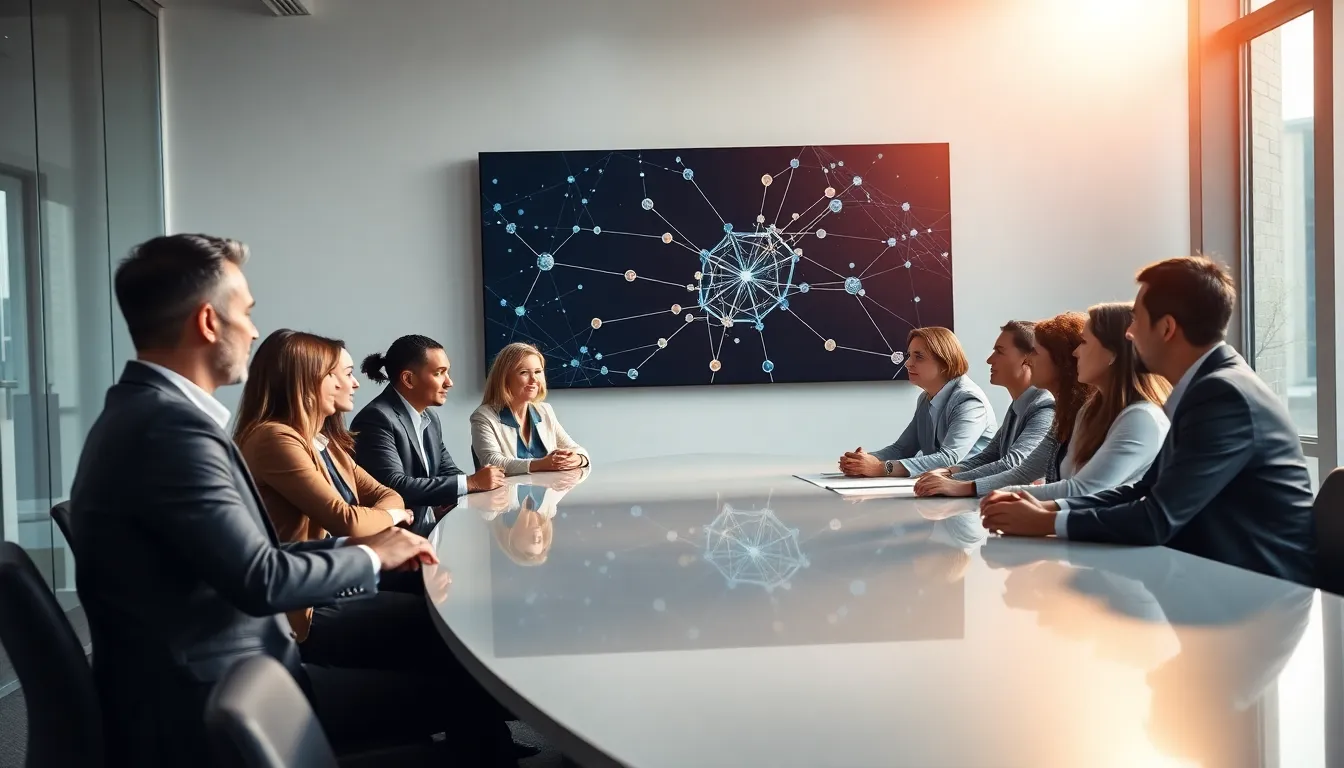Have you ever found yourself pondering why politics seem to influence everything from your morning coffee choice to your favorite Netflix show? Welcome to the world of politics, a fascinating arena that shapes our lives more than we realize. In this text, we’ll jump into what politics really means, how it has evolved through the ages, and why understanding it is key to navigating our societal landscape. Get ready to unpack the layers of a concept that defines not just governments but our everyday existence as well, all while keeping a light-hearted approach. After all, who said discussing politics has to be dull?
Table of Contents
ToggleUnderstanding the Concept of Politics

Politics can often feel like a maze filled with complex terms and shifting loyalties. To simplify, politics is fundamentally about power, how it is acquired, exercised, and disseminated. While many might associate politics solely with government structures or elections, its reach extends far beyond that narrow definition. From local school boards to international diplomatic relations, politics affects decision-making processes at various levels.
At its core, politics involves individuals and groups working toward common goals. These social interactions are mediated by varying degrees of power and authority, which can manifest in different forms. Understanding politics not only clarifies public discussions but also helps individuals engage more effectively in their communities.
The Historical Evolution of Politics
To grasp the present, one must look to the past. The history of politics stretches back to ancient civilizations where tribes and nations formed rudimentary governments. From the assemblies of Ancient Greece, which birthed democracy, to the empires that expanded through autocracy, key events have fundamentally shifted political landscapes over centuries.
During the Renaissance, political thought began to change, with thinkers like Machiavelli challenging the status quo. Shifts continued through revolutions, wars, and reforms leading to today’s complex political systems. Each period crafted the frameworks we operate within now, illustrating that politics isn’t static. It continuously adapts based on societal needs, values, and conflicts.
The Role of Politics in Society
Politics serves multiple functions within society, acting as a mediator between the needs of citizens and institutional responses. It defines the rules of engagement for communities while providing a platform for debates about cultural values, justice, and rights.
Also, politics plays a vital role in addressing societal challenges. Whether it’s environmental policy, healthcare, or education reform, political processes influence solutions, or lack thereof. The public, often entangled in passionate debates, must engage with political discourse to voice their needs.
Eventually, the role of politics extends beyond mere governance to include the shaping of societal norms and values, emphasizing its pervasive influence on daily life.
Different Political Systems and Their Definitions
Political systems vary globally, each shaping politics in distinct ways. Those systems, democracy, authoritarianism, totalitarianism, and monarchy, offer unique templates for governance.
The Intersection of Politics and Identity
In a democracy, for instance, citizen participation and voting processes foster accountability and representation. On the flip side, authoritarian regimes centralize power, often curtailing freedoms but allegedly providing stability. Understanding these systems illuminates the intricate nature of governance and citizen experience.
Society also finds itself often at the intersection of politics and identity. People’s backgrounds, be it race, religion, or economic status, intersect with political affiliations, impacting policy discussions and societal dynamics. Politics then, is not merely an abstract concept but one grounded in the everyday identities we all carry.
Politics in the Global Context
Politics doesn’t just play out in isolation: it transcends borders, intertwining with global issues. Concepts like globalization suggest that national politics are increasingly influenced by international relations. Economic policies, climate change, and human rights discussions highlight interconnectedness.
The rise of multinational organizations and treaties reflects this global dimension. Institutions like the United Nations shape collective responses to issues that no single nation can tackle alone. In this sense, politics becomes a shared try, requiring negotiations and compromises that honor diverse perspectives.
The Future of Politics: Emerging Trends and Challenges
As society evolves, so too does the political landscape. Emerging trends like digital activism and social media have revolutionized how people engage with political discourse. Information spreads instantly, making it critical for political movements to adapt quickly and effectively.
But, these changes also pose challenges. Misinformation can distort political realities, complicating citizen understanding. Besides, issues like climate change and inequality demand urgent political action, forcing governments and citizens to rethink traditional approaches.
Also, the influence of technology will likely define the future. Innovations like artificial intelligence may reshape governance structures and public policy, bringing new opportunities and ethical dilemmas to the forefront.





